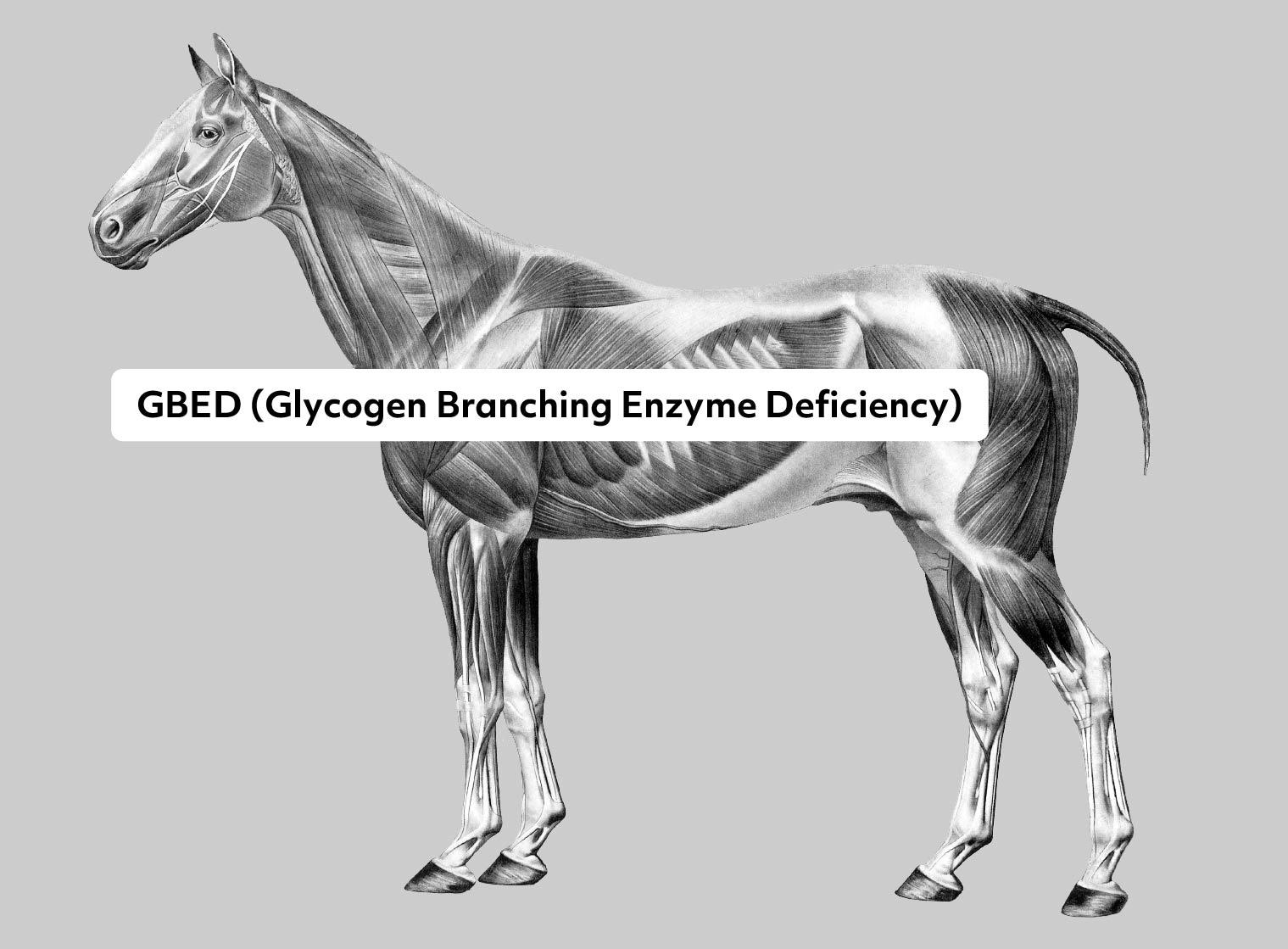Glycogen Branching Enzyme Deficiency (GBED)
Gene or Region: GBE1
Reference Variant: C
Mutant Variant: A
Affected Breeds: Quarter Horses and Paint Horses
Research Confidence: High - Findings reproduced in multiple studies
Explanation of Results: gbed/gbed = homozygous for Glycogen Branching Enzyme Deficiency, trait expressed gbed/n = heterozygous for Glycogen Branching Enzyme Deficiency, carrier n/n = no variant detected
Glycogen Branching Enzyme Deficiency (GBED) in Horses: Genetic Testing, Symptoms, and Management
Glycogen Branching Enzyme Deficiency (GBED) is a lethal recessive disorder characterized by seizures, muscle weakness, respiratory failure, and death. Many affected foals do not make it full term and are aborted or stillborn. Carriers (gbed/n) have no known issues. This disorder is analogous to glycogen storage disease type IV in humans and Norwegian forest cats. Studies have indicated that between 4-11% of registered American Quarter Horses and American Paint Horses carry the GBED mutation.
Gene Information
GBE1 is an enzyme involved in the conversion between glucose and glycogen. Both stored glycogen and mobilized glucose are vital for normal physiological functions. Glycogen storage disorders have been documented in many species. The GBED mutation results in a premature stop codon that severely truncates the produced protein.
References
Ward TL et al., “Glycogen branching enzyme (GBE1) mutation causing equine glycogen storage disease IV.” (2004) Mamm Genome. 15: 570-7. PMID: 15366377
Wagner ML et al., “Allele frequency and likely impact of the glycogen branching enzyme deficiency gene in Quarter Horse and Paint Horse populations.” (2006) J Vet Intern Med. 20: 1207-11. PMID: 17063718
Tryon RC et al., “Evaluation of allele frequencies of inherited disease genes in subgroups of American Quarter Horses.” (2009) J Am Vet Med Assoc. 234: 120-5. PMID: 19119976
More Horse Health
Occipitoatlantoaxial Malformation 1
Occipitoatlantoaxial Malformation 1 (OAAM1) is an inherited developmental condition predominantly found in Arabian horses, characterized by abnormal development of the cervical vertebrae leading to compression of the upper cervical cord and subsequent neurological damage.
Polysaccharide Storage Myopathy
Polysaccharide Storage Myopathy (PSSM) is a glycogen storage disorder in which affected horses have chronic episodes of exertional rhabdomyolysis (“tying-up”). Acute symptoms are an unwillingness to move and muscle damage following exercise. Moderate symptoms can usually be managed through a low-sugar/starch diet and exercise.
Recurrent Laryngeal Neuropathy
Recurrent Laryngeal Neuropathy (RLN) is a disease that results in loss of the neurons that open the larynx, significantly affecting performance in Thoroughbreds and other sport horses. It is an important issue for horses in competitive events because the resultant paralysis of the larynx leads to obstruction of air flow during intense exercise, creating the abnormal inspiratory noise that gives RLN its common name: “roaring”.
